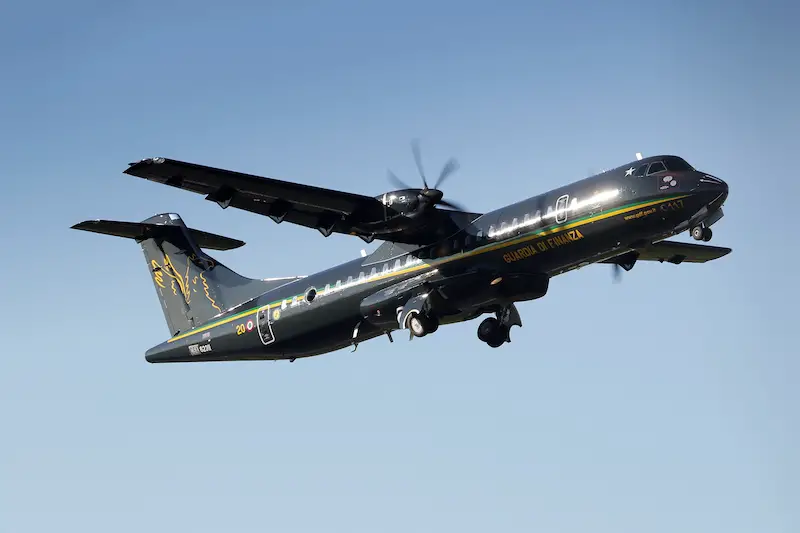The first two out of four P-72Bs ordered by Italy’s Guardia di Finanza have been handed over during an official ceremony held at Leonardo’s Caselle Torinese facility today. Deliveries will be completed by 2022.
Lucio Valerio Cioffi, Aircraft Division MD at Leonardo, said: “We are proud that Guardia di Finanza has chosen to integrate our ATR 72MP into its naval airborne capabilities. This aircraft fully represents Leonardo’s technological capabilities and it combines reliability, low operating costs in addition to the ATR 72-600 regional passenger transport benefits.”
Designated as P-72B, the aircraft will be integrated into the aeronautical capabilities of Guardia di Finanza, within the framework of the multirole tasks assigned to the operator. The Guardia di Finanza is the only law enforcement agency with general jurisdiction capable of exercising incisive and constant supervisory activities along the entire nation’s coastal development and in international waters, carried out also due to the advanced technological equipment installed on its own aircraft.
Specific latest generation capabilities embedded for the first time into the ATR 72MP will be useful to support dedicated surveillance activities entrusted to the Guardia di Finanza. The ATR 72MP will operate in air-sea patrol and research missions, using on-board sensors to identify, even discreetly, sensitive objects, monitor their behaviour, acquire evidence, and lead the intervention of naval units and land patrols.
The ATR 72MP, already in service with the Italian Armed Forces in a military version called P-72A, is equipped with the modular Leonardo ATOS (Airborne Tactical Observation and Surveillance) mission system. The ATOS manages a wide range of aircraft sensors, combining the information received in an overall tactical situation and presenting the results to the operators of the mission system in the most suitable format, providing a high level and constantly updated scenario.
Thanks to its commercial derivation, the ATR 72MP delivers its crew levels of ergonomics that increase its efficiency and effectiveness during maritime patrol, search and identification missions, search and rescue operations, counter drug trafficking, piracy, smuggling and preventing any illegal action across the territorial waters, which can typically last more than 8 hours.
















